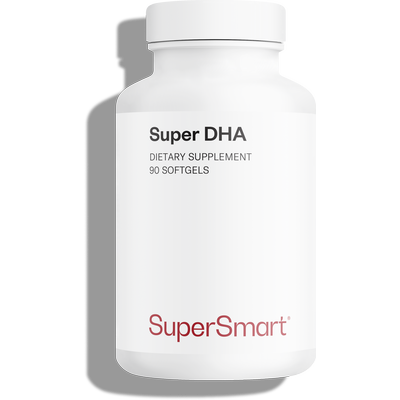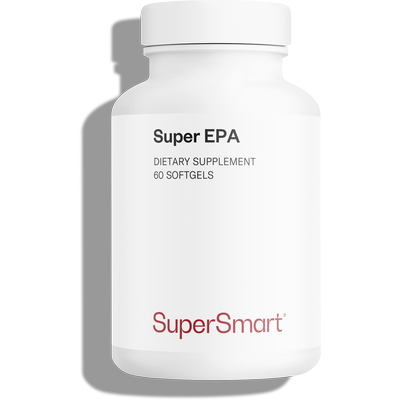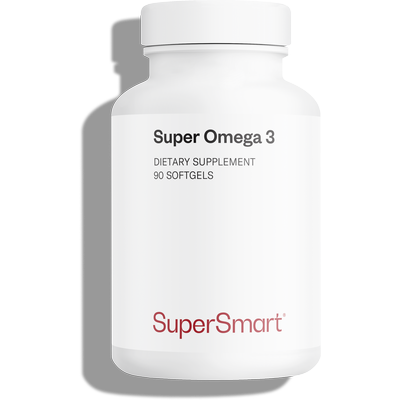07-02-2018
Omega-3 fatty acids for reducing the risk of allergy
 A new study from the Karolinska Institute in Sweden reveals that a high level of omega-3 fatty acids in children at the age of 8 is associated with a decreased risk of asthma or rhinitis at the age of 161. The study was published in the Journal of Allergy and Clinical Immunology.
A new study from the Karolinska Institute in Sweden reveals that a high level of omega-3 fatty acids in children at the age of 8 is associated with a decreased risk of asthma or rhinitis at the age of 161. The study was published in the Journal of Allergy and Clinical Immunology. Scientists have yet to identify the pathological mechanisms responsible for triggering allergies. There are a number of known risk factors such as air pollution, exposure to second-hand smoke during early childhood, not being breast-fed, an over-sanitised environment and … an imbalance between omega-3 and omega-6 fatty acids.
It’s been known for decades that the average Western diet provides too many omega-6 and too few omega-3. The ratio between the two, which should be between 1:1 and 4:12-3, may actually be somewhere between 10:1 and 30:1. In other words, over-consumption of omega-6 (found primarily in vegetable oils and processed food) prevents the omega-3 from being optimally used by the body. It’s worth repeating that the small amount of omega-3 provided by the diet has to compete with the omega-6 to be properly absorbed by the body. In excess, the omega-6 monopolise the enzymes, vitamins (particularly B3 and B6) and minerals (magnesium and zinc) necessary for the absorption of omega-3.
Restoring a balanced intake of polyunsaturated fatty acids
This imbalance promotes the development of cardiovascular problems and inflammatory disease2, and according to this new study, disorders such as asthma and allergies. It’s important than to set a good example to our children by restoring the balance as soon as possible, by following these three practical solutions:
1) Increase your intake of omega-3 fatty acids (from oily fish, shrimps, flax seed, chia seed, pumpkin seed …).
2) Reduce that of your omega-6, particularly processed fatty foods, corn- or soya-fed poultry, pork and vegetable oils.
3) Take omega-3 supplements containing either docosahexaenoic acid (Super DHA), or eicosapentaenoic acid (Super EPA), or a mix of the two (Super Omega 3).
In our modern society, it seems the third option may offer the most reliable solution: due to increasing heavy metal pollution, the French Food Safety Agency now recommends eating no more than two portions of fish a week.
References
1. Magnusson J, Ekström S, Kull I, Håkansson N, Nilsson S, Wickman M, Melén E, Risérus U, Bergström A. Polyunsaturated fatty acids in plasma at 8 years and subsequent allergic disease. The Journal of Allergy and Clinical Immunology, December 2017 DOI: 10.1016/j.jaci.2017.09.023
2. Kris-Etherton PM,et al. Fish consumption, fish oil, omega-3 fatty acids, and cardiovascular disease. Circulation. 2002 Nov 19;106(21):2747-57. Texte intégral : http://circ.ahajournals.org
3. Simopoulos AP. Essential fatty acids in health and chronic disease. Am J Clin Nutr. 1999 Sep;70(3 Suppl):560S-569S. Review. Texte intégral : www.ajcn.org
Order the nutrients mentioned in this article
Further reading
14-03-2017
Allergies affect between 30% and 40% of the world’s population. They have multiple causes and take various forms such as food allergies, allergic rhinitis, asthma,...
Read more02-05-2017
On this, World Asthma Day, the World Health Organisation (WHO) reminds us that 235 million people across the globe are affected by this chronic disease...
Read more29-03-2012
Sneezing, watery eyes, scratchy throat, runny nose – spring must be here! The good news is that long-lasting relief from the classic symptoms of seasonal...
Read more© 1997-2026 Fondation pour le Libre Choix
All rights reserved
All rights reserved
Free
Thank you for visiting our site. Before you go
REGISTER WITHClub SuperSmart
And take advantage
of exclusive benefits:
of exclusive benefits:
- Free: our weekly science-based newsletter "Nutranews"
- Special offers for club members only




















